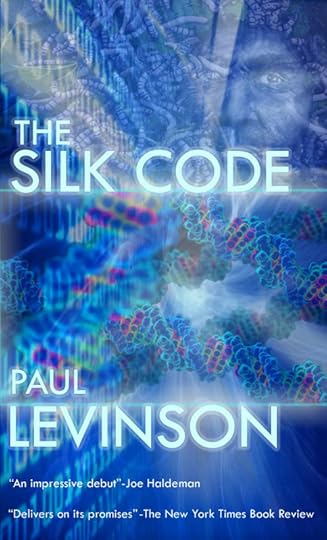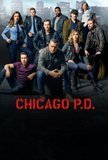Paul Levinson's Blog: Levinson at Large, page 263
January 20, 2016
David G. Hartwell: R.I.P.
David G. Hartwell, my science fiction editor at Tor Books, suffered a grievous "brain bleed" yesterday after a fall, and is not expected to recover. (Note added later in the day - and, alas, he did not.)
Actually, David was no longer my editor at Tor, since I stopped publishing with them after The Plot to Save Socrates paperback in 2007. But I'll always think of him as my editor.
The big corporate world of traditional publishing boils down, as all human activities do, to individual human beings. It's not that Tor wanted to publish my work, it was David. In fact, though editors here and there have loved this or that piece of my work, I owe my career in science fiction to just two editors: Dr. Stanley Schmidt at Analog Magazine and Dr. David G. Hartwell at Tor. Had it not been for them, I'd have missed out on what is often the best part of my professional life - being a published author of science fiction, getting a seat at the table of people whose works map out the quintessentially human activity of transforming the cosmos, maybe just a little.
Working with David was remarkable in itself. When he told you, after reading a draft of your novel, that all you needed to do for it now was "move around some of the furniture," he was telling you it needed a major overhaul of ripping up and moving around chapters. When a novel of yours he believed in didn't strike it all that big in sales, he attributed it to people for some reason "looking the other way". He pleaded with me not to have a cat killed in one of my stories - he said readers would never forgive me - and I'm pretty sure I changed that scene and spared that cat. He advised against the title The Consciousness Plague for my second Phil D'Amato novel, claiming he had never had any luck with novels with "plague" in the title, and he was right about that, too. He was not right about everything, and to this day I regret going along with some of his suggestions, but every book of mine that he edited bears his stamp, and I'm glad to have it.
David lived until a few years ago just a few miles north of me in Westchester, New York. I drove him home from events in New York City, attended his birthday parties, and baby sat his son Peter with my son Simon. Taking Peter to a dog show in White Plains, New York was easily a high point of that month.
David Brin, David Hartwell, and I were judges at the Fourth Annual Philip K. Film Festival in New York City just this past Martin Luther King, Jr. weekend. I was there on Wednesday, Saturday, and Sunday. David Hartwell was there on Thursday - when, of course, I was seriously thinking of going, but got tied up in something else.
So I've got to settle for the videos below - of David, Stan Schmidt, and me at a panel five years ago, and David and me at his birthday party in 2011 (this brief video by Moshe Feder). And I can still hope for a miracle. I've always believed in while there's life there's hope, and, hey, that's what science fiction is all about. (Note added later in the day - and sadly, there was no science fictional ending to this story. RIP, David, you bettered the lives of many people.)
Paul Levinson's books ... Paul Levinson's music
Actually, David was no longer my editor at Tor, since I stopped publishing with them after The Plot to Save Socrates paperback in 2007. But I'll always think of him as my editor.
The big corporate world of traditional publishing boils down, as all human activities do, to individual human beings. It's not that Tor wanted to publish my work, it was David. In fact, though editors here and there have loved this or that piece of my work, I owe my career in science fiction to just two editors: Dr. Stanley Schmidt at Analog Magazine and Dr. David G. Hartwell at Tor. Had it not been for them, I'd have missed out on what is often the best part of my professional life - being a published author of science fiction, getting a seat at the table of people whose works map out the quintessentially human activity of transforming the cosmos, maybe just a little.
Working with David was remarkable in itself. When he told you, after reading a draft of your novel, that all you needed to do for it now was "move around some of the furniture," he was telling you it needed a major overhaul of ripping up and moving around chapters. When a novel of yours he believed in didn't strike it all that big in sales, he attributed it to people for some reason "looking the other way". He pleaded with me not to have a cat killed in one of my stories - he said readers would never forgive me - and I'm pretty sure I changed that scene and spared that cat. He advised against the title The Consciousness Plague for my second Phil D'Amato novel, claiming he had never had any luck with novels with "plague" in the title, and he was right about that, too. He was not right about everything, and to this day I regret going along with some of his suggestions, but every book of mine that he edited bears his stamp, and I'm glad to have it.
David lived until a few years ago just a few miles north of me in Westchester, New York. I drove him home from events in New York City, attended his birthday parties, and baby sat his son Peter with my son Simon. Taking Peter to a dog show in White Plains, New York was easily a high point of that month.
David Brin, David Hartwell, and I were judges at the Fourth Annual Philip K. Film Festival in New York City just this past Martin Luther King, Jr. weekend. I was there on Wednesday, Saturday, and Sunday. David Hartwell was there on Thursday - when, of course, I was seriously thinking of going, but got tied up in something else.
So I've got to settle for the videos below - of David, Stan Schmidt, and me at a panel five years ago, and David and me at his birthday party in 2011 (this brief video by Moshe Feder). And I can still hope for a miracle. I've always believed in while there's life there's hope, and, hey, that's what science fiction is all about. (Note added later in the day - and sadly, there was no science fictional ending to this story. RIP, David, you bettered the lives of many people.)
Paul Levinson's books ... Paul Levinson's music
Published on January 20, 2016 09:56
January 18, 2016
Why Hillary's F from the NRA is Preferable to Bernie's D-
Gun control came up again in last night's Democratic Presidential debate in South Carolina - as indeed it should. Doing something, anything, to reduce the epidemic of death by guns in the United States is about as urgent as it gets.
To be clear, Bernie has an excellent record of doing something to reduce gun violence. But it's also clear that his record on this is not as good as Hillary's.
The NRA's grading of Bernie and Hillary reports this accurately.
Bernie received a D- from the NRA, a grade indicating the NRA's evaluation of Bernie's support for the NRA's pro-gun positions, or their staunch opposition for any stronger limitation on sales and use of guns in the United States than what we have now. As a professor, I know full well that D- is a poor grade, a terrible grade. But it is a grade that is a PASSING GRADE. If a student gets a D- in a course, he or she has passed the course, and receives credit for passing the course. The course is listed on the transcript, and the credits are applied towards graduation.
In other words, Bernie passed muster with the NRA - minimally, the most minimally, but he passed it.
In contrast, Hillary received an F from the NRA. An F is a failing grade. Students who receive an F do not get credit for the course. And if they need the course for graduation, or want to get credit for the course, they need to take the course again. An F is thus obviously a lower grade than a D-, and there is no grade lower than F. There is no F-.
As to why the NRA gave Bernie a D- rather than an F, the facts are out there: Bernie voted five times against the Brady bill, voted to allow guns on Amtrak and in national parks, and indeed at times was graded C- by the NRA (and at other times, F). Here's a complete run-down by Politifact. The gist is that the NRA's grading of Bernie is not incorrect. The NRA is horribly wrong in its ceaseless efforts against gun control, but it is capable of accurately keeping track of votes on legislation to limit gun use.
I can understand, completely, why some people might prefer Bernie to Hillary as President. Perhaps they think cracking down on Wall Street and its abuse is more important than cracking down on the proliferation of guns in this country. And Bernie's D- from the NRA, again, shows that he is excellent in his opposition to the NRA and their efforts to limit gun control. I would vote for Bernie in a heartbeat against any Republican, and the A and A- grades they have received from the NRA.
But because I see guns as the single biggest violent threat to life in this country, I'm supporting Hillary in the Democratic primaries. I want the very best person on this daily lethal issue - or, in the NRA's view, the very worst.
Paul Levinson's books ... Paul Levinson's music
To be clear, Bernie has an excellent record of doing something to reduce gun violence. But it's also clear that his record on this is not as good as Hillary's.
The NRA's grading of Bernie and Hillary reports this accurately.
Bernie received a D- from the NRA, a grade indicating the NRA's evaluation of Bernie's support for the NRA's pro-gun positions, or their staunch opposition for any stronger limitation on sales and use of guns in the United States than what we have now. As a professor, I know full well that D- is a poor grade, a terrible grade. But it is a grade that is a PASSING GRADE. If a student gets a D- in a course, he or she has passed the course, and receives credit for passing the course. The course is listed on the transcript, and the credits are applied towards graduation.
In other words, Bernie passed muster with the NRA - minimally, the most minimally, but he passed it.
In contrast, Hillary received an F from the NRA. An F is a failing grade. Students who receive an F do not get credit for the course. And if they need the course for graduation, or want to get credit for the course, they need to take the course again. An F is thus obviously a lower grade than a D-, and there is no grade lower than F. There is no F-.
As to why the NRA gave Bernie a D- rather than an F, the facts are out there: Bernie voted five times against the Brady bill, voted to allow guns on Amtrak and in national parks, and indeed at times was graded C- by the NRA (and at other times, F). Here's a complete run-down by Politifact. The gist is that the NRA's grading of Bernie is not incorrect. The NRA is horribly wrong in its ceaseless efforts against gun control, but it is capable of accurately keeping track of votes on legislation to limit gun use.
I can understand, completely, why some people might prefer Bernie to Hillary as President. Perhaps they think cracking down on Wall Street and its abuse is more important than cracking down on the proliferation of guns in this country. And Bernie's D- from the NRA, again, shows that he is excellent in his opposition to the NRA and their efforts to limit gun control. I would vote for Bernie in a heartbeat against any Republican, and the A and A- grades they have received from the NRA.
But because I see guns as the single biggest violent threat to life in this country, I'm supporting Hillary in the Democratic primaries. I want the very best person on this daily lethal issue - or, in the NRA's view, the very worst.
Paul Levinson's books ... Paul Levinson's music
Published on January 18, 2016 10:35
January 15, 2016
Heroes Reborn 1.12: Penultimate
 Well, the news has come that Heroes Reborn won't be back for a second season on NBC - ratings are low, most critics don't like it, blah blah blah. Although the series was slow to start, it's gotten better with every episode, and this week's penultimate hour was, I thought, outstanding in many ways.
Well, the news has come that Heroes Reborn won't be back for a second season on NBC - ratings are low, most critics don't like it, blah blah blah. Although the series was slow to start, it's gotten better with every episode, and this week's penultimate hour was, I thought, outstanding in many ways.We finally get the back story of Erica, and it was thoroughly satisfying, including bringing in the memory erasing man - for some reason, one of my favorites of the Reborn line-up - to explain what happened with Erica's daughter. On the subject of mind-manipulation, Parkman gets his just deserts, which provides a nice dessert for his part of the story.
And speaking of justice, Joanne finally gets what's due her, appropriately by Luke, just after a really cool saving of Malina from Joanne's bullets by invisible Farah getting in front of Malina at just the right moment. This kind of action has been happening throughout the series, and is one of the reasons I like Heroes Reborn - in many ways certainly better than the end of the original Heroes (that's right). It's a different kind of story telling.
But Heroes Reborn has actually done an excellent job integrating characters from Heroes, with Micah - older, of course, and played by an older Noah Gray-Cabey - playing a pivotally heroic communications role in the story. We even get a picture of Claire - her first appearance in the reborn series - and my biggest regret about Heroes Reborn is that we couldn't also have seen a few minutes of her on the screen.
It all ends - possibly for good, though I hope not - with the series finale next week. I predict, that as time passes, Heroes Reborn will be recognized for the gem that it is - a little flawed, yeah, maybe very flawed in places, but a unique of kind of complex fast-paced mosaic narrative seen nowhere else on any size screen.
See also Heroes Reborn: Good to Be Back ... Heroes Reborn 1.3: Carly Fiorina meets Steve Jobs ... Heroes Reborn 1.4: GPS RIP ... Heroes Reborn 1.6: Space, Time, Videogame ... Heroes Reborn 1.7: Time Travel and Twins ... Heroes Reborn 1.8: Answers and Questions ... Heroes Reborn 1.9: The Memory Man
And see also Heroes Season 4 Premiere: Metaphysics, University, Carnival ...Heroes Meets The L Word in 4.5 ... Heroes 4 Mid-Season Finale ... Heroes Season 4 Resumes ... Heroes 4.15: The Chess Game Continues ... 4.16: The Trial of Hiro ... 4.18: Penultimate ... Heroes Forever
And see also reviews of Season 3 Heroes Gets Lost ... Heroes 3 Begins: Best Yet, Riddled with Time Travel and Paradox ... Sylar's Redemption and other Heroes and Villains Mergers ... Costa Nuclear ... Hearts of Gold and the Debased ... Seeing the Future Trumps Time Travel ... Superpowered Chess with Shifting Pieces ... Villains and Backstories ... The Redemption of Sylar ... Thoughts on the Eclipse, Part I ... The Lore of the Comic Book Store ... Hiro's Time Traveling Closure ... Augmented ... Shades of Recalibration ... Baby, Rebel, and Last Fantasy ... All that Shape Changes Remains the Same? ... Season 3 Finale: Hopeful Deceptions
Reviews of Season 2 Heroes: Episode 1 ... 2 ... 3 ... 4 ... 7. Heroes Meets 12 Monkeys ... 9. How Immutable Are Fate and Isaac's Futures? ... 10. Penultimate for the Fall ... Heroes 2 Finale: Heroes Who Didn't Survive
And from Season 1: Heroes in Focus ... Heroes Five Years Gone: Triumph of Time Travel and Comics ... Heroes the Hard Part: Only the Pictures Not the Words ... Heroes Landslide: Winnowing and Convergence ... Heroes Volume One Finale
#SFWApro

time travel on a train Paul Levinson's books ... Paul Levinson's music
Published on January 15, 2016 22:43
Downton Abbey 6.3: Sneak Preview Review
Back with a review of the next episode of Downton Abbey - 6.3 - to air on PBS this Sunday. As always with these preview reviews, I'll talk in generalities, and mention no specific people. But if you prefer not to get even an inkling of what will be on the screen this Sunday, read on no further.
Episode 6.3 is, by my recollection, one of the most joyful hours ever on Downton Abbey. The crises, none of which were that serious in the first place, were all resolved, save one. And we were treated to at least four pieces of really good news:
1. Good news for one of our couples, who have never seemed happier.
2. Good news for another one of our couples, who, for different reasons than the above, have also never seemed happier.
And if that double dose of sunshine wasn't enough -
3. Someone, who surely deserves it, may be on the beginning of finding love.
And, just for great measure -
4. There's a wonderful surprise at the very end of the episode.
Given that we're dealing with television drama, too much good news is always a source of concern, as the creators feel impelled to balance the good with more than a bit of heart break. There's one crisis yet unresolved, but that doesn't seem too potentially heartbreaking. There's another problem emerging, but that doesn't seem earth shattering, either. The health of one of our major characters, however, could be a very upsetting issue.
So there's no reason to think it will all be smooth sailing ahead. But, in the meantime, you can watch this Sunday's episode and really feel good about life and all it holds.
See also other sneak preview reviews for the final season of Downton Abbey: 6.2 ... Paul Levinson's books ... Paul Levinson's music
Episode 6.3 is, by my recollection, one of the most joyful hours ever on Downton Abbey. The crises, none of which were that serious in the first place, were all resolved, save one. And we were treated to at least four pieces of really good news:
1. Good news for one of our couples, who have never seemed happier.
2. Good news for another one of our couples, who, for different reasons than the above, have also never seemed happier.
And if that double dose of sunshine wasn't enough -
3. Someone, who surely deserves it, may be on the beginning of finding love.
And, just for great measure -
4. There's a wonderful surprise at the very end of the episode.
Given that we're dealing with television drama, too much good news is always a source of concern, as the creators feel impelled to balance the good with more than a bit of heart break. There's one crisis yet unresolved, but that doesn't seem too potentially heartbreaking. There's another problem emerging, but that doesn't seem earth shattering, either. The health of one of our major characters, however, could be a very upsetting issue.
So there's no reason to think it will all be smooth sailing ahead. But, in the meantime, you can watch this Sunday's episode and really feel good about life and all it holds.
See also other sneak preview reviews for the final season of Downton Abbey: 6.2 ... Paul Levinson's books ... Paul Levinson's music
Published on January 15, 2016 11:26
January 14, 2016
Donald Trump, Lawrence O'Donnell, and the KIND Fund
Lawrence O'Donnell presented a fascinating and instructive true-story at the end of his Last Word hour on MSNBC last night. Here are the details: Donald Trump sent Lawrence a check for $10,000 made out to the KIND Fund - UNICEF's Kids in Need of Desks charity, which uses donations to buy desks for kids in need in Malawi, a charity that Lawrence (with the help of Victor Chinyama) began with UNICEF in 2010 and talks about frequently on his show. Lawrence said he appreciated the check, but couldn't accept it - technically, because it was made out to the KIND fund, not UNICEF, but, more importantly, as Lawrence explained, because he as a news commentator could not accept a gift for his charity from a Presidential contender. Lawrence made a new contribution of $10,000 himself, so that his refusal of Trump's contribution would not result in the children in Malawi not receiving the desks this money will buy. (You can see the video of this entire segment here.)
This event says a lot about both Trump and O'Donnell. First, the charity is eminently worthy (I and my wife have made separate, much smaller, contributions to it). Trump's contribution was thus to a good cause, and deserves at least some praise for that. But what were its motives - there are, after all, many very worthy charities in this world. My best guess: Trump and his campaign have been delighted with Harvard professor Laurence Tribe's appearance on Lawrence O'Donnell's show a few nights ago, excoriating Ted Cruz's hypocrisy in being not a literal originalist about the Constitution and what it says about "natural born" and American Presidents - saying it's "settled law" though it's not -when Cruz has argued throughout his career that the Constitution must otherwise be literally respected. Trump has seized on this in his speeches, trumpeting Tribe's statements as support for Trump's attack on his leading rival, Cruz.
Given that backdrop, Lawrence O'Donnell had no choice but to refuse the donation, to make sure it could not be construed as some kind of reward from Trump for the Tribe statement. The donation also shows something about Trump's thinking - rewarding people who support him has so intrinsically been the way he has done business all of his life, that it probably never occurred to him that making the donation could create an ethical problem for O'Donnell. Trump truly does play by his own rules, which is no doubt one of the main reasons he has been doing so well in the polls.
As for the natural-born issue, I've to say, being a supporter of neither Cruz or Trump, that I think the interpreation that born of an American parent should be the equivalent of born on American soil should be the rule we follow when it comes to Presidential candidates. I'd like to see the Supreme Court make a definitive ruling on this as soon as possible - which I know will need a case to be brought before it, after the case goes through the lower courts, which means it likely will be not soon at all.
In the meantime, kudos to Donald Trump for whatever part of his attempted contribution was truly charitable - and for writing the check which will indeed result in help for Malawi children, via Lawrence' O'Donnell's check which Donald Trump's check motivated - and kudos to Lawrence O'Donnell and his ethical compass for turning the original check down, and threading the needle in a way that did not disadvantage the kids in Malawi.
Paul Levinson's books ... Paul Levinson's music
This event says a lot about both Trump and O'Donnell. First, the charity is eminently worthy (I and my wife have made separate, much smaller, contributions to it). Trump's contribution was thus to a good cause, and deserves at least some praise for that. But what were its motives - there are, after all, many very worthy charities in this world. My best guess: Trump and his campaign have been delighted with Harvard professor Laurence Tribe's appearance on Lawrence O'Donnell's show a few nights ago, excoriating Ted Cruz's hypocrisy in being not a literal originalist about the Constitution and what it says about "natural born" and American Presidents - saying it's "settled law" though it's not -when Cruz has argued throughout his career that the Constitution must otherwise be literally respected. Trump has seized on this in his speeches, trumpeting Tribe's statements as support for Trump's attack on his leading rival, Cruz.
Given that backdrop, Lawrence O'Donnell had no choice but to refuse the donation, to make sure it could not be construed as some kind of reward from Trump for the Tribe statement. The donation also shows something about Trump's thinking - rewarding people who support him has so intrinsically been the way he has done business all of his life, that it probably never occurred to him that making the donation could create an ethical problem for O'Donnell. Trump truly does play by his own rules, which is no doubt one of the main reasons he has been doing so well in the polls.
As for the natural-born issue, I've to say, being a supporter of neither Cruz or Trump, that I think the interpreation that born of an American parent should be the equivalent of born on American soil should be the rule we follow when it comes to Presidential candidates. I'd like to see the Supreme Court make a definitive ruling on this as soon as possible - which I know will need a case to be brought before it, after the case goes through the lower courts, which means it likely will be not soon at all.
In the meantime, kudos to Donald Trump for whatever part of his attempted contribution was truly charitable - and for writing the check which will indeed result in help for Malawi children, via Lawrence' O'Donnell's check which Donald Trump's check motivated - and kudos to Lawrence O'Donnell and his ethical compass for turning the original check down, and threading the needle in a way that did not disadvantage the kids in Malawi.
Paul Levinson's books ... Paul Levinson's music
Published on January 14, 2016 13:48
January 11, 2016
Colony 1.1: Alien Occupation with Potential
 Hey, I saw the first episode of Josh Holloway's latest series, Colony, on the USA Network last night, and liked it. Definitely has potential. (I saw it On Demand - the series will premier this Thursday, January 10.)
Hey, I saw the first episode of Josh Holloway's latest series, Colony, on the USA Network last night, and liked it. Definitely has potential. (I saw it On Demand - the series will premier this Thursday, January 10.)With the demise of Falling Skies and the success of Childhood's End (it got pretty good reviews, though I wasn't thrilled with the ending of novel in the first place, but that's just me), we're definitely due for another alien occupation of Earth series. Colony could well be it.
Holloway's Will Bowman and his wife Katie (played by Sarah Wayne Callies = Lori Grimes from The Walking Dead) play the pivotal couple in the story, and do it well. It's good to see both back on television, as well as more work from Lost co-runner Carton Cuse.
[spoilers below]
I say apparently, because in a nice last scene, we learn that Katie is part of the resistance herself, and she tells a colleague that they now have someone on the inside of the collaborators. That would be Will, which raises the question: is Will working with Katie now in the resistance, is he a double agent, or is Katie planning to use him for the noble good of we humans?
It's probably the former - Will and Katie probably talked about this off-camera - but the set-up is promising in any case. The special effects are enjoyable, too - especially the scene with the alien ship taking off - and I'm definitely looking forward to more on Colony.

not exactly aliens, but strange enough ... The Silk Code Paul Levinson's books ... Paul Levinson's music
Published on January 11, 2016 08:49
January 9, 2016
Downton Abbey 6.2: Sneak Preview Review
 I got my hands on a complete DVD set of the sixth and final season of Downton Abbey - it's been broadcast already in the U.K., and, for all I know, elsewhere - but not past the first episode here in the US, which was on PBS just last Sunday. My wife and I have become inveterate binge watchers, but we decided, with Downton Abbey, as befits its wonderful 1920s ambience, to watch just one episode at time. But, hey, we're only human, so we're going to watch, starting tonight, one episode a week at least a day or more before its broadcast on PBS.
I got my hands on a complete DVD set of the sixth and final season of Downton Abbey - it's been broadcast already in the U.K., and, for all I know, elsewhere - but not past the first episode here in the US, which was on PBS just last Sunday. My wife and I have become inveterate binge watchers, but we decided, with Downton Abbey, as befits its wonderful 1920s ambience, to watch just one episode at time. But, hey, we're only human, so we're going to watch, starting tonight, one episode a week at least a day or more before its broadcast on PBS.I haven't reviewed Downton Abbey with any regularity here - in fact, only once, two years ago - and I don't intend to start doing that now. It's liberating, once in a a while, not to review something I love, and Downton Abbey for some reason fell right into that category.
But what I will do is provide some very general, non-specific pointers to what you can expect in each episode, at least a day or two before it airs. These won't contain spoilers per se, but if you'd rather get not even a whiff of what you'll be seeing on PBS, don't read these, or any further in this blog post.
Here are some highlights in episode 6.2:
1. Downton Abbey episodes aren't titled, but if 6.2 was, an apt name might have been "Decorating the Servants' Quarters," or some such. The question is whether said decoration would be suitable for the event - suitable for its principals. Some slightly surprising emotions, but thoroughly understandable even admirable, given that event.
2. Speaking of emotions, they lead to two significant occurrences. Someone goes missing, and a couple are leaving the show - all for the better, regarding the latter, but not easy.
3. There's also some hope for someone who needs it. But, as in all things Downton Abbey, and, for that matter, life itself, the hope is not certain. Still, it's very good to see, because it's so eminently well deserved.
That it's for tomorrow night's episode. Enjoy - and I'll be back here before next Sunday with a review of 6.3.
Paul Levinson's books ... Paul Levinson's music
Published on January 09, 2016 17:37
El Chapo - Narcos Connection?
The news just came through today that El Chapo was captured because he was attempting to get word out to potential producers to make a bio-pic about his life, and the Mexican Marines picked up on this.
Which led me to think: Was Narcos, released this past summer on Netflx, what got El Chapo started on thinking he would be a good subject for a movie? After all, El Chapo likely sees himself as the successor to Pablo Escabar, the Columbian drug lord who was the subject of Narcos.
And El Chapo does have a great, cinematic story. The tunnel, almost a mile long, which he used to escape was a real feat of engineering. Ironically, his capture now will made him an even more fitting subject for a movie or TV series, providing an ending with much more closure.
TV and motion pictures have often been criticized for glorifying crime. But Narcos on Netflix could be an example of just the opposite in its ultimate effect.
Score another accolade for Netflix and its live streaming. Between Making a Murderer (a documentary) and Narcos, these new television series are having a real impact on our world.
See also my reviews of Narcos and Making a Murderer.
Paul Levinson's books ... Paul Levinson's music
Which led me to think: Was Narcos, released this past summer on Netflx, what got El Chapo started on thinking he would be a good subject for a movie? After all, El Chapo likely sees himself as the successor to Pablo Escabar, the Columbian drug lord who was the subject of Narcos.
And El Chapo does have a great, cinematic story. The tunnel, almost a mile long, which he used to escape was a real feat of engineering. Ironically, his capture now will made him an even more fitting subject for a movie or TV series, providing an ending with much more closure.
TV and motion pictures have often been criticized for glorifying crime. But Narcos on Netflix could be an example of just the opposite in its ultimate effect.
Score another accolade for Netflix and its live streaming. Between Making a Murderer (a documentary) and Narcos, these new television series are having a real impact on our world.
See also my reviews of Narcos and Making a Murderer.
Paul Levinson's books ... Paul Levinson's music
Published on January 09, 2016 11:04
January 6, 2016
Making a Murderer: Showing Us the Truth about our Unjust Justice System
 There are monsters in Making a Murderer, the 10-hour documentary released on Netflix just a few weeks ago, but likely not Steven Avery and definitely not his nephew Brendan Dassey, both sentenced to life imprisonment for the murder of Teresa Halbach ten years ago, in 2005. No, the indisputable monsters in this true story are police, prosecutors, and Dassey's first defense attorney.
There are monsters in Making a Murderer, the 10-hour documentary released on Netflix just a few weeks ago, but likely not Steven Avery and definitely not his nephew Brendan Dassey, both sentenced to life imprisonment for the murder of Teresa Halbach ten years ago, in 2005. No, the indisputable monsters in this true story are police, prosecutors, and Dassey's first defense attorney.Also indisputable is that Avery was not guilty of a rape and assault committed in 1985, for which he served 18 years in prison - nearly half of them after the real criminal confessed - said confession shelved by the detective who could act upon it - and for which crime Avery was released only after the discovery of DNA that was the rapist's not Avery's.
Much of the 10 hours of Making a Murderer are the trials of Avery and his nephew for the 2005 murder, and the various appearances in court before and after the trials. These courtroom scenes in themselves make Making a Murderer like no other documentary you've ever seen, and one especially and ideally suited to streaming as on Netflix. As you watch hour after hour of this wrenching horror story unfold, you feel for all the world as if you're actually in those courtrooms, in the jury box, watching the proceedings unfold. (I served as foreperson on a jury on a much lesser criminal trial a few years ago, and watching Making a Murderer brought all of that back.) The interviews, especially Avery's attorneys and family, are also indelible.
Brendan Dassey was convicted on no evidence other than a confession obtained by police, who fed him the elements of the confession, and by a ratification of that confession by his first defense attorney's investigator, who for some reason (he and the attorney) wanted their client to confess to Halbach's murder. The amazing and sickening thing about both of those confessions, and the role of the detectives and the defense attorney's investigator, is that the interrogations of Dassey, then 16 years old and with limited intellectual capacity, were fully recorded on video. But more sickening and horrifying than that was the fact that the jury and judge in the original trial, and subsequent judges who reviewed the case and trial, saw those videos - as did we, the audience of this remarkable documentary. The decisions of those jurors and judges, on the basis of what we have seen with own eyes, is about the worst indictment of our legal system I've ever seen.
Avery's situation is a little more complicated. He never confessed. He was convicted for the murder on the basis of evidence - such as his blood found in the victim's car. An FBI agent testified that a test proved the blood was fresh - not taken from a vial of Avery's blood stored from the 1985 case. A forensic expert called by the defense testified that the FBI agent had not accurately reported the limits of the test - in particular, that the lack of an EDTA finding in the test did not prove that EDTA was not present in the blood (yes, that's the way many of these tests work - a positive finding means the chemical was present, but a negative finding does not mean it was not). The forensic expert explained this very clearly. Enough for reasonable doubt and a not-guilty verdict, right? You might think so, but not in this trial (though it was later revealed that 7 of the 12 jurors in the Avery case initially wanted a not-guilty verdict, and were inexplicably talked out of it).
Winston Churchill is famous for saying democracy is the least worst form of government, and Making a Murderer provides a vivid piece of evidence that the same could be said for our judicial system. Video evidence, seeing something with your own eyes, was apparently not enough in Dassey's case. But, then again, it hasn't been enough in the cases of cop after cop in the past few years, shown right there on video shooting or otherwise killing an innocent African American - not enough for grand juries to indict, or if they do indict, for most juries to return a guilty verdict (see my Eye in the Sky in the Hand for more).
The common awful denominator of Making a Murderer and all of those black lives matter cases is the undue respect so many Americans have for our police and prosecutorial systems. One can only hope that, as more people see this extraordinary documentary, they will begin to see the truth behind the curtain. Thank you Moira Demos and Laura Ricciardi, the film makers, and Netflix for bringing this to our attention.
Paul Levinson's books ... Paul Levinson's music
Published on January 06, 2016 23:52
Chicago Fire - Chicago Med - Chicago PD - Triple Crossover


 Chicago Fire and Chicago Med began a triple crossover of related stories on NBC last night, which will conclude tonight on Chicago PD. Crossovers are nothing new on television, especially for Dick Wolf, who has already done crossovers with Chicago PD and his remaining NYC cop show, Law and Order: Special Victims Unit. But Wolf has made a fine art of this, thoroughly integrating the ensemble cast of all three series, making the result more like a three-hour movie than a series of connected episodes.
Chicago Fire and Chicago Med began a triple crossover of related stories on NBC last night, which will conclude tonight on Chicago PD. Crossovers are nothing new on television, especially for Dick Wolf, who has already done crossovers with Chicago PD and his remaining NYC cop show, Law and Order: Special Victims Unit. But Wolf has made a fine art of this, thoroughly integrating the ensemble cast of all three series, making the result more like a three-hour movie than a series of connected episodes.In contrast, CSI had an excellent triple-crossover some years ago with its Las Vegas, Miami, and New York shows, but the narrative featured the head of the Las Vegas group going to Miami, then New York, then back to Las Vegas on a vexing case. Last night on NBC we saw major characters from Med and PD on the Fire hour, and then major PD and Fire characters on the Med hour. The result was seamless and satisfying.
Even when there aren't cross-over events, the three Chicago shows are well blended, with characters from each of the series naturally appearing on the others. Gabby on Fire has a brother on PD. She also had a flirtation with a guy who turned out to be PD undercover, who in turn has a brother in Med. One of the firefighters just became engaged to a sergeant on PD, and another is striking up a relationship with a nurse on Med. And even when there aren't romantic or familial connections, characters from the other two shows regularly show up on Fire, PD, and Med. The EMT Unit on Fire brings the injured to Med, and if crime is the cause of the injury, or arson is at work on Fire, that effectively pulls PD into the story. The result is that the three series are always on the cutting edge of crossover.
Of the three series, I like Fire the best. Series about firefighters are more rare on television than shows about cops - of which there seem to have been hundreds over the years - or medical shows, which have been on television continuously since the days of Dr. Kildare. The only fire show I can recall is Rescue Me, which like Chicago Fire, was outstanding (and drop-dead funny, to boot).
In age in which television is rapidly evolving into new kinds of narratives on streaming services like Netflix and Amazon, it's good to see the networks reinventing their storytelling via Dick Wolf's crossovers.
Paul Levinson's books ... Paul Levinson's music
Published on January 06, 2016 11:50
Levinson at Large
At present, I'll be automatically porting over blog posts from my main blog, Paul Levinson's Infinite Regress. These consist of literate (I hope) reviews of mostly television, with some reviews of mov
At present, I'll be automatically porting over blog posts from my main blog, Paul Levinson's Infinite Regress. These consist of literate (I hope) reviews of mostly television, with some reviews of movies, books, music, and discussions of politics and world events mixed in. You'll also find links to my Light On Light Through podcast.
...more
- Paul Levinson's profile
- 342 followers



